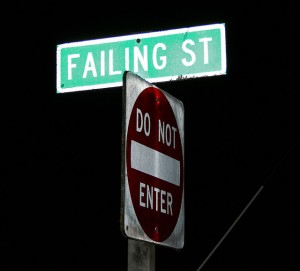 Today, another guest post– this time from Danielle Rodabaugh, a principal for Surety Bonds.com, an agency that issues surety bonds to individuals and businesses throughout the nation. She aims to clarify bonding rules & regulations, and has recently been focusing on construction/contract bonds. Danielle will be discussing bonding issues within the North Carolina construction industry.
Today, another guest post– this time from Danielle Rodabaugh, a principal for Surety Bonds.com, an agency that issues surety bonds to individuals and businesses throughout the nation. She aims to clarify bonding rules & regulations, and has recently been focusing on construction/contract bonds. Danielle will be discussing bonding issues within the North Carolina construction industry.
————————————–
Reliable professionals working in the construction industry want to guarantee the quality of their work to their clients, and that’s where surety bonds come in. In construction, contract (or construction) bonds are a type of surety bond utilized to ensure that professionals follow regulations and make appropriate decisions while working on a project. Construction bonds typically protect the client and work similarly to insurance—although they offer a different kind of protection.
What’s a surety bond?
In the construction industry a surety bond is essentially a legal agreement between three parties to help ensure the fulfillment of a contract:
- Obligee–typically the developer or worker who receives the protection of the bond, guaranteeing that the contractor fully completes the project
- Principal–the contractor who gets the bond, guaranteeing that they will fulfill various aspects of the project as outlined in the contract
- Surety–the agency who issues the bond to the principal, thus backing the contractor’s work and acting as an intermediary between the contractor and obligee
There are three main types of construction bonds that are utilized in North Carolina:
- bid bonds
- performance bonds
- payment bonds
Each of these bonds plays a different role in guaranteeing the work of a contractor throughout a project’s duration. North Carolina surety bond agencies have the ability to issue construction bonds to qualifying professionals who want to take advantage of their benefits. Unfortunately, many working in the construction industry are still unaware of the legal financial protection offered by construction bonds.
Bid Bond Issues in North Carolina
Bid bonds guarantee a developer that—if selected—a contractor will agree to work on a project for the amount proposed in the original bid. This guards against contractors who might try to increase their bid on a project after being contracted by the developer. With a bid bond in place, the developer may collect appropriate reparation if the contractor breaks the bond’s terms. If such a situation arises, the resulting compensation is typically calculated by how much more the developer has to pay to contract the next-lowest bidder for the project. If the contractor does not have the ability to adequately compensate the developer the surety becomes responsible for paying reparation up to the bond’s full value.
Although North Carolina state law does not require the use of bid bonds on either private or public construction projects, a developer may still choose to require them as an added form of protection. According to N.C. Gen. Stat. s. 143-129, which outlines the procedure for letting of public contracts, North Carolina contractors must provide an upfront deposit in the amount of 5% of the total bid when submitting their bid. The language explains that a contractor may choose to provide a bid bond in lieu of making the required cash deposit. Bid bonds can be especially helpful for new contractors who may not have the necessary cash on hand for the collateral, as the surety would financially back the contractor’s bid.
Performance Bond Issues in North Carolina
Contractors secure performance bonds to guarantee that they will perform all aspects of a project as outlined in the contract. Should the contractor fail to complete the project satisfactorily, the performance bond allows the developer to regain appropriate compensation. If the contractor cannot pay the reparation then the performance bond instructs the surety to step in. Depending on the situation, the surety might be responsible for paying retribution up to the bond’s full face value for any extra fees incurred as a result of the contractor’s incomplete work.
Performance bonds are not required for private projects in North Carolina, however some regulations mandate their use for certain public ones. For example, the use of performance bonds is required when any government entity enters into a construction contract in an amount more than $100,000. Furthermore, they are also required for any other public construction project that exceeds $15,000, no matter the developer or specific contract. Additionally, any developer has the right to require a selected contractor to get a performance bond prior to a project, which especially benefits the developers of private projects or smaller projects that cost less than $15,000. All state-mandated performance bonds must be issued for 100% of the project’s contracted cost.
Payment Bond Issues in North Carolina
Payment bonds are put in place to make sure that contractors will pay all labor and material costs as outlined in the contract. Because mechanic’s liens—which ensure payment of outstanding debts upon sale of a property—can only be used on private property projects, payment bonds are essential to making sure that all bills are paid in full. Subcontractors (or other workers) can make a claim on the bond if a contractor does not make the appropriate payments, allowing them to recover deserved compensation.
Simply put, payment bonds are required on all projects that mandate the use of performance bonds. North Carolina General Statute 44A-27 explains that any professional working on a bonded project who is not paid for his labor within 90 days has the ability to make a claim on the bond. Private projects in North Carolina do not require the use of payment bonds, although these individuals may elect to use them at their own discretion. This goes to show that although bonds are not always be required in North Carolina, they are most certainly enforced. Oftentimes this means that individuals working within North Carolina’s construction industry must take the initiative to utilize construction bonds.
——————————-
Danielle and I welcome your thoughts, comments, and questions about surety bonds in the comments section, below.
——————————-
Photo “Checking the bond” by Stephen via Picasa/Creative Commons License.
 Recently I was contacted by several readers asking questions about “Pay when Paid” clauses. For those of you who may have missed it, I’ve previously addressed Pay When Paid issues in my April 29, 2010 post, Pay When Paid Clauses in the NC Construction Contract.
Recently I was contacted by several readers asking questions about “Pay when Paid” clauses. For those of you who may have missed it, I’ve previously addressed Pay When Paid issues in my April 29, 2010 post, Pay When Paid Clauses in the NC Construction Contract.


